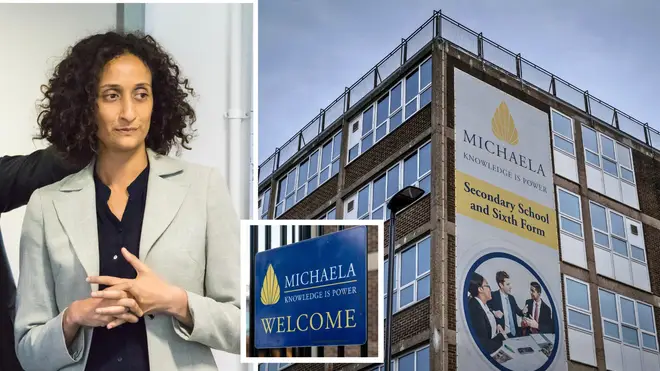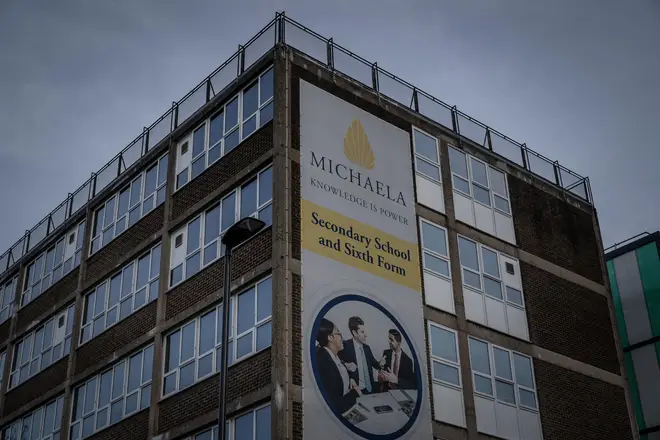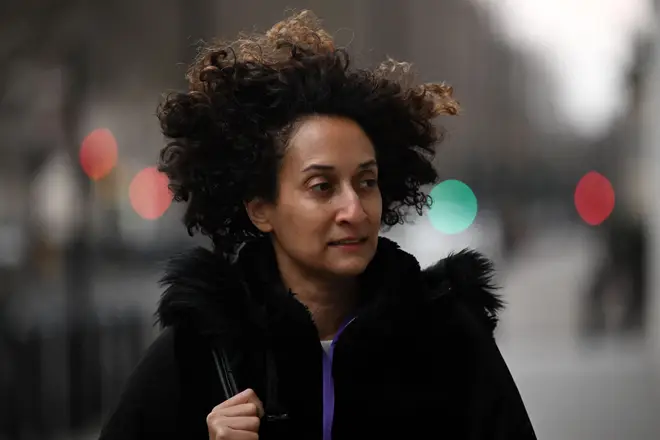
James O'Brien 10am - 1pm
16 April 2024, 11:03 | Updated: 16 April 2024, 12:59

A Muslim student at ‘Britain’s strictest school’ has lost a High Court challenge over a ban on prayer rituals.
A pupil took legal action against Michaela Community School in Brent, claiming its policy effectively amounted to a prayer ban. The pupil argued the school's stance was discriminatory and “uniquely” affected her faith due to its ritualised nature.
She argued the school's stance on prayer - one of the five pillars of Islam - unlawfully breached her right to religious freedom and was "the kind of discrimination which makes religious minorities feel alienated from society".
The school, founded and led by headteacher Katharine Birbalsingh, who has described herself as Britain's strictest head teacher, argued its prayer policy was justified after it faced death and bomb threats linked to religious observance on site.
Ms Birbalsingh posted online after the case was dismissed: “A school should be free to do what is right for the pupils it serves.
“The court’s decision is therefore a victory for all schools.
My statement regarding the verdict on our ban of prayer rituals at Michaela. pic.twitter.com/88UMC5UYXq
— Katharine Birbalsingh (@Miss_Snuffy) April 16, 2024
“Schools should not be forced by one child and her mother to change its approach simply because they have decided they don’t like something at the school.
“Multiculturalism works at Michaela not because we’ve emptied the identity space of the school in order to accommodate difference, but because we have a clear identity which anyone can sign up to, if they are willing to compromise.
“If parents do not like what Michaela is, they do not need to send their children to us.”
In a two-page statement, she continued: "To the Jehovah Witnesses: We teach Macbeth as a GCSE text, even though it has witches in it. To the Muslims: We don't have a prayer room. To the Christians: We will offer revision classes on Sundays. To the Hindus: The plates will have been touched by eggs. We are always clear about this: our restrictive building, strict ethos and desire to see multiculturalism succeed, mean that self-sacrifice is required. Parents, knowing this, have the freedom to make informed choices. This is who we are.
"At Michaela, we expect all religions and all races to make the necessary sacrifices to enable our school to thrive. The vast majority do so without complaint.
"We make the sacrifice of eating vegetarian food at lunch to enable us to break bread with each other across racial and religious divides. "
A Downing Street spokesperson said educators were best placed to make decisions on what takes place in their schools.
"We welcome the judgement... The school is an outstanding school, the government has always been clear that heads are best placed to take decisions on what takes place in their school including how to accommodate prayer. this judgement supports them."

In a written ruling on Tuesday, Mr Justice Linden dismissed the pupil's arguments against the prayer rituals ban.
In an 83-page judgment dismissing the student's case, Mr Justice Linden said: "It seems to me that this is a case ... where the claimant at the very least impliedly accepted, when she enrolled at the school, that she would be subject to restrictions on her ability to manifest her religion.

"She knew that the school is secular and her own evidence is that her mother wished her to go there because it was known to be strict.
"She herself says that, long before the prayer ritual policy was introduced, she and her friends believed that prayer was not permitted at school and she therefore made up for missed prayers when she got home."
The judge upheld the student's challenge to a decision to temporarily exclude her from the school.
Lawyers for the pupil told the judge at a hearing in January that she was making a "modest" request to be allowed to pray for around five minutes at lunch time, on dates when faith rules required it, but not during lessons.
The school's legal team told the court in London that students seen praying outside contributed to a "concerted campaign" on social media over the free school's approach to religion, with there also being a since-removed online petition attracting thousands of signatures.
They added that the governors and headteacher at the school of some 700 pupils, about half of whom are Muslim, had "a margin of latitude, discretion or judgment" over its policies.
The pupil’s lawyers previously said the “prayer ban” unlawfully breached her right to religious freedom, adding that it made her feel “like somebody saying they don’t feel like I properly belong here”.
The school’s founder and headteacher Ms Birbalsingh had previously said on social media that it was defending its “culture and ethos” along with decisions to “maintain a successful and stable learning environment where children of all races and religions can thrive”.